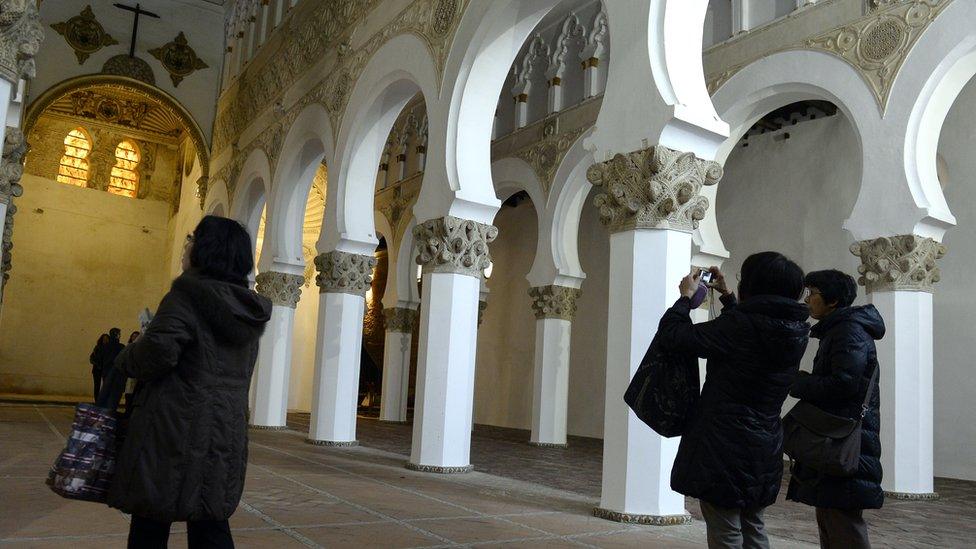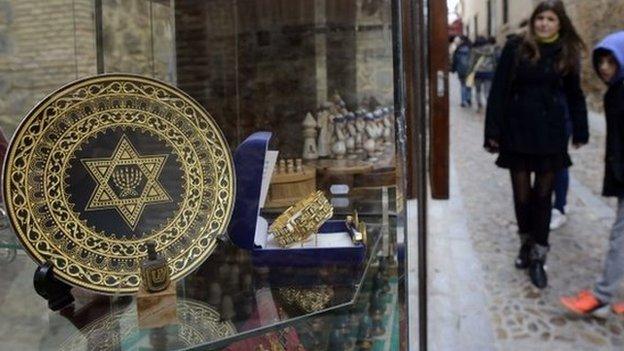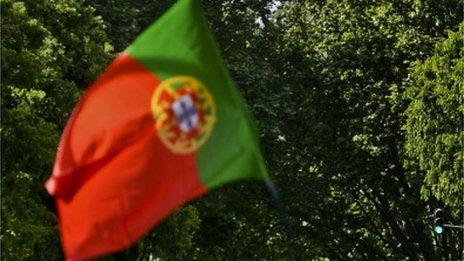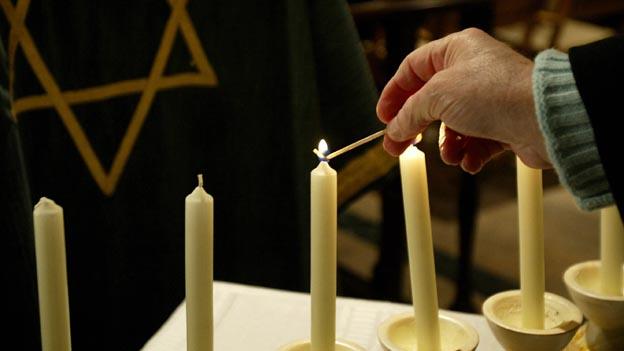Spain naturalises expelled Sephardic Jews' descendants
- Published

The Spanish government calls the expulsion of tens of thousands of Jews in 1492 a "historic mistake"
Spain has granted citizenship to 4,302 people whose Jewish ancestors were expelled five centuries ago during the Inquisition.
A new law allowing dual citizenship for the descendants of those forced out in 1492, known as Sephardic Jews, was passed in June.
It came into force on Thursday.
Friday's move, however, follows a government decision to fast-track those who had applied for citizenship under a previous law.
The older law had required them to relinquish their other nationality.
Most of the group are from Morocco, Turkey and Venezuela, Spain's Federation of Jewish Communities said.
Justice Minister Rafael Catala said the decision had been made so they would not have to file another application.
Those seeking citizenship under the new law need to have their ancestry checked by Jewish authorities.

Who are the Sephardic Jews?
Jews have lived in Spain since Roman times
Sephardic comes from the Hebrew word Sepharad, which means Spain
Originally used to refer to descendants of the Jews from Spain
They are scattered around the world - in Israel, Turkey, the US, South America, Greece, Bulgaria, France, the UK and elsewhere
Sephardic Jew is now a wider term, and can refer to Jews of Oriental, Asian and African origin

They must also demonstrate basic knowledge of Spanish, pass a test about Spanish culture and prove a modern connection to Spain.
Tens of thousands of Jews were expelled in 1492 during the Spanish Inquisition, which the government has called a "historic mistake".
Those who remained had to convert to Catholicism or risk being burnt at the stake.
The citizenship programme was first announced in 2012.
- Published11 June 2015

- Published29 January 2015

- Published6 March 2013
